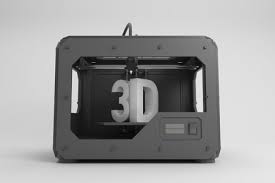- Home
- Medical news & Guidelines
- Anesthesiology
- Cardiology and CTVS
- Critical Care
- Dentistry
- Dermatology
- Diabetes and Endocrinology
- ENT
- Gastroenterology
- Medicine
- Nephrology
- Neurology
- Obstretics-Gynaecology
- Oncology
- Ophthalmology
- Orthopaedics
- Pediatrics-Neonatology
- Psychiatry
- Pulmonology
- Radiology
- Surgery
- Urology
- Laboratory Medicine
- Diet
- Nursing
- Paramedical
- Physiotherapy
- Health news
- Fact Check
- Bone Health Fact Check
- Brain Health Fact Check
- Cancer Related Fact Check
- Child Care Fact Check
- Dental and oral health fact check
- Diabetes and metabolic health fact check
- Diet and Nutrition Fact Check
- Eye and ENT Care Fact Check
- Fitness fact check
- Gut health fact check
- Heart health fact check
- Kidney health fact check
- Medical education fact check
- Men's health fact check
- Respiratory fact check
- Skin and hair care fact check
- Vaccine and Immunization fact check
- Women's health fact check
- AYUSH
- State News
- Andaman and Nicobar Islands
- Andhra Pradesh
- Arunachal Pradesh
- Assam
- Bihar
- Chandigarh
- Chattisgarh
- Dadra and Nagar Haveli
- Daman and Diu
- Delhi
- Goa
- Gujarat
- Haryana
- Himachal Pradesh
- Jammu & Kashmir
- Jharkhand
- Karnataka
- Kerala
- Ladakh
- Lakshadweep
- Madhya Pradesh
- Maharashtra
- Manipur
- Meghalaya
- Mizoram
- Nagaland
- Odisha
- Puducherry
- Punjab
- Rajasthan
- Sikkim
- Tamil Nadu
- Telangana
- Tripura
- Uttar Pradesh
- Uttrakhand
- West Bengal
- Medical Education
- Industry
USFDA approves first 3D printed technology drug

In a first of its kind, the 3D printing technology with give you just the enough liquid dosages in your mouth, rather than a one-pill fit for all philosophy
The first 3D printing technology drug, made by privately held Aprecia Pharmaceuticals Co, has been recently approved by the US regulator to have customized pills for patients. The drug in consideration is used for oral use as a prescription adjunctive therapy in the treatment of epilepsy.
The same 3D printers have been earlier used by dentists to create replicas of jaws and teeth as well as some finished dental implants. Even the orthopedic surgeons have tested them to make customized hip replacements. Besides, the British scientists have also used 3D printing to create personalized replica models of cancerous parts of the body to allow doctors to target tumors more precisely.
3D printing could help companies make products "to the specifications of an individual patient rather than (take a) one-size-fits-all kind of approach," Wedbush Securities analyst Tao Levy said (as reported by PTI).
3D printers help make products by layering material until a three-dimensional object is created.
The first 3D printing technology drug, made by privately held Aprecia Pharmaceuticals Co, has been recently approved by the US regulator to have customized pills for patients. The drug in consideration is used for oral use as a prescription adjunctive therapy in the treatment of epilepsy.
The same 3D printers have been earlier used by dentists to create replicas of jaws and teeth as well as some finished dental implants. Even the orthopedic surgeons have tested them to make customized hip replacements. Besides, the British scientists have also used 3D printing to create personalized replica models of cancerous parts of the body to allow doctors to target tumors more precisely.
3D printing could help companies make products "to the specifications of an individual patient rather than (take a) one-size-fits-all kind of approach," Wedbush Securities analyst Tao Levy said (as reported by PTI).
3D printers help make products by layering material until a three-dimensional object is created.
Next Story


